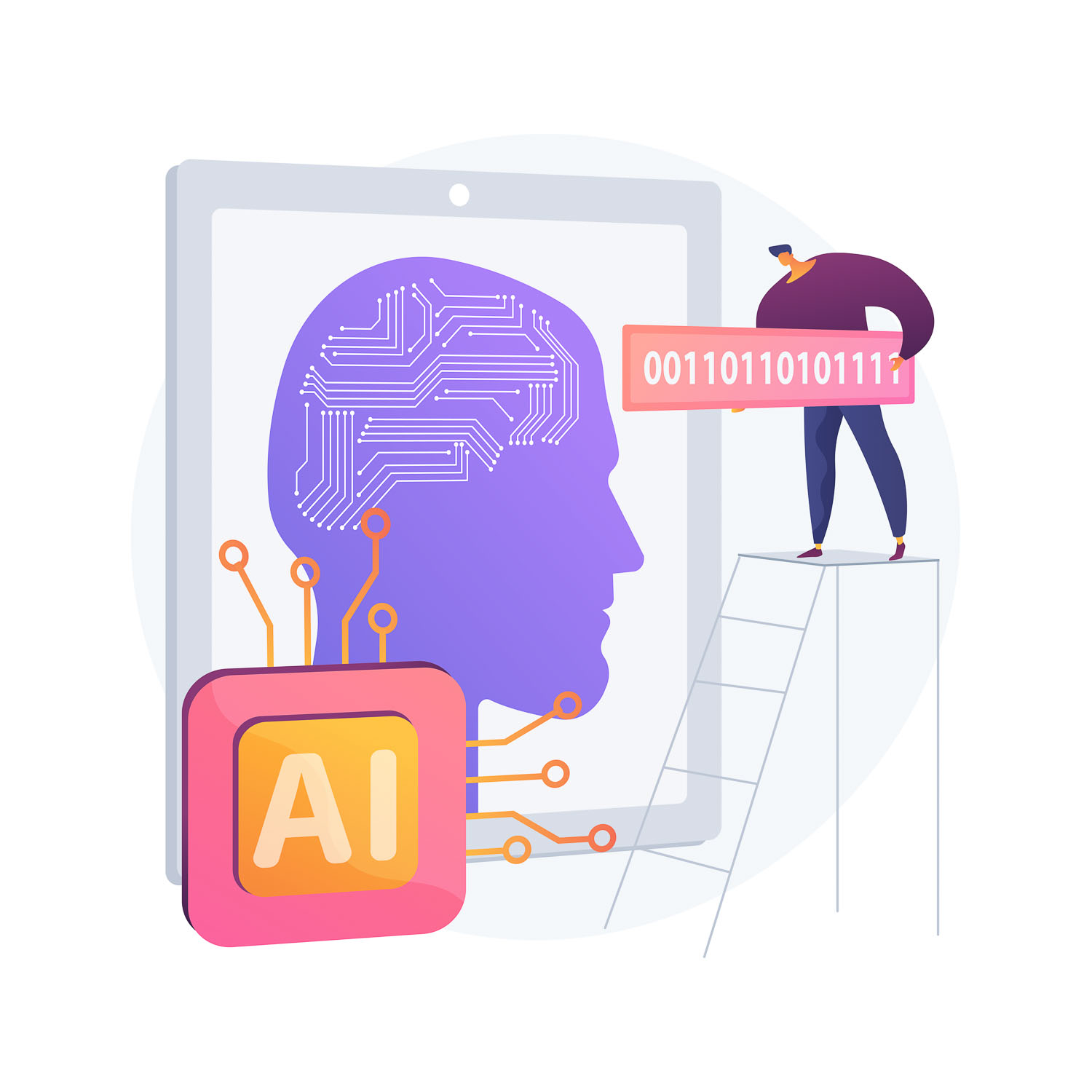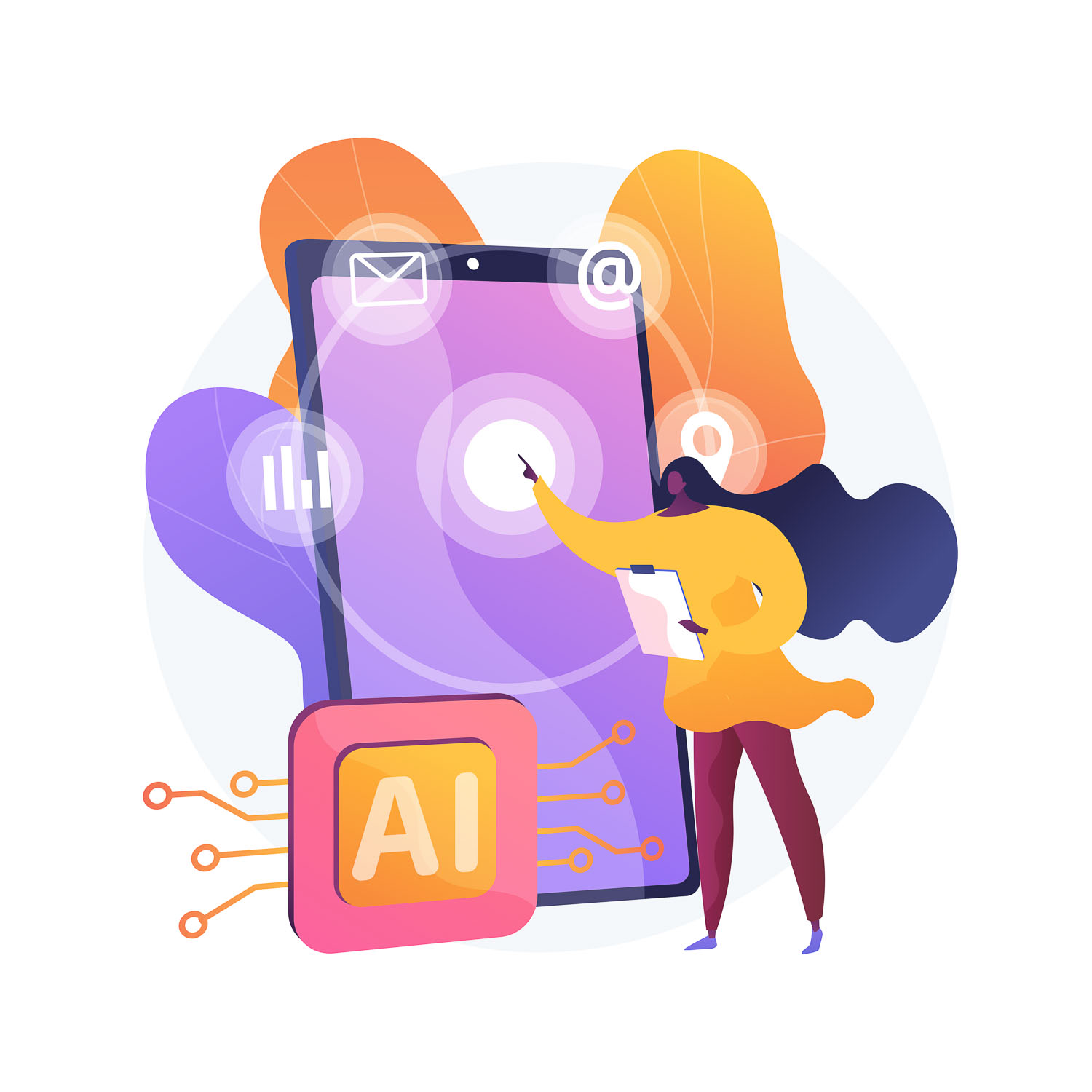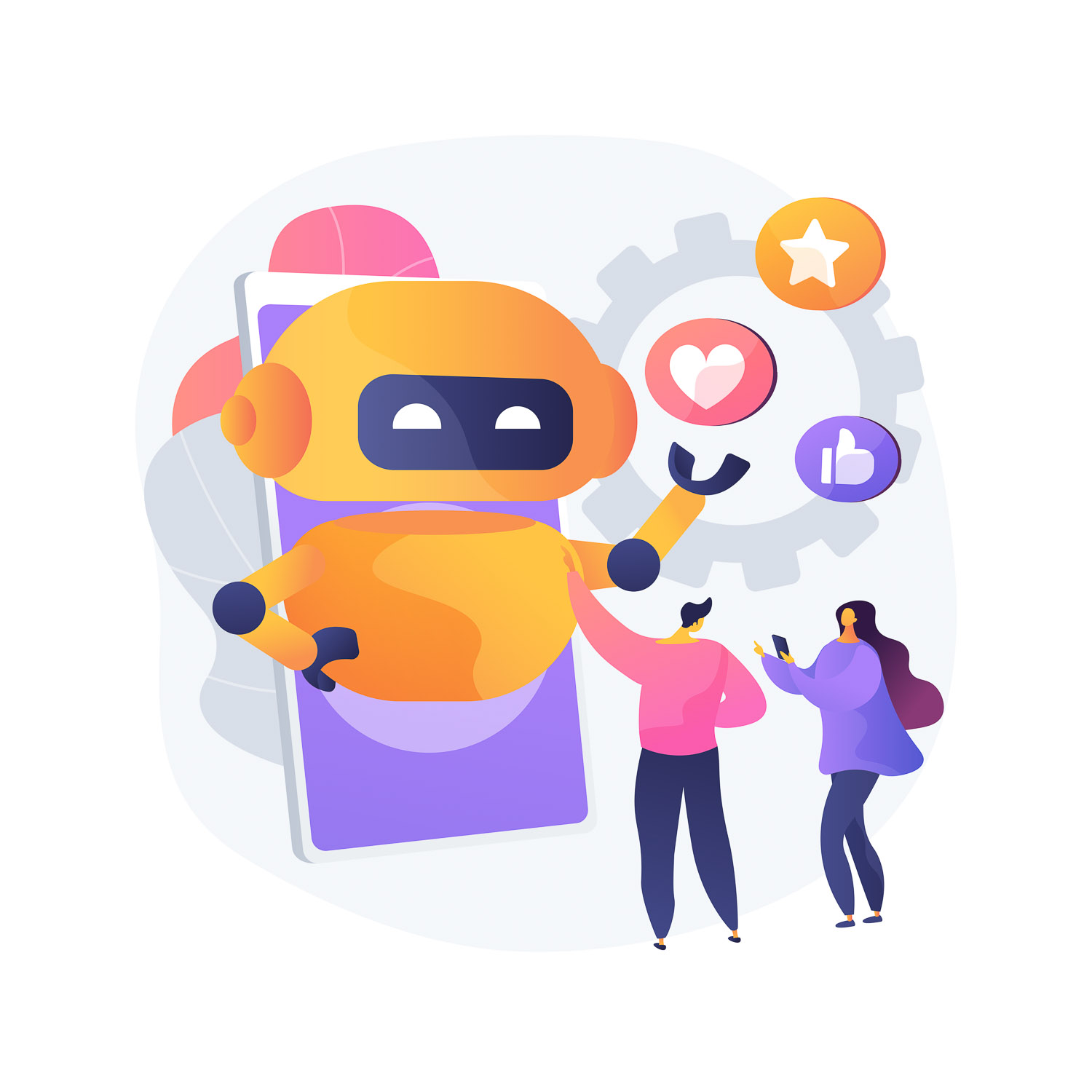Artificial Intelligence (AI) technology is rapidly changing the business landscape. Its ability to automate processes, perform complex analyses, and provide insights makes it valuable in business applications. With AI, you can automate tasks like customer service, data entry, or security monitoring, letting your employees focus on strategic roles.
AI algorithms can uncover trends and correlations within large datasets that are impossible for humans to analyze manually, giving you valuable insights and a competitive edge. It’s time to consider how AI can help your business succeed in today’s data-driven world.
- What Is AI?
- Types Of AI
- Applications Of AI In Business
- Benefits Of AI For Business
- Conclusion
- Frequently Asked Questions
- How can AI improve decision-making processes in businesses?
- What are some practical applications of AI in everyday business operations?
- Which AI tools are considered most beneficial for business analytics?
- How can small businesses integrate AI without a large budget?
- What kind of training is needed for employees to work with AI in a business setting?
- Can artificial intelligence be used to enhance customer service, and if so, how?
What Is AI?

AI is a branch of computer science that aims to replicate human intelligence and behavior in machines. It uses techniques like machine learning, natural language processing, and robotics to create systems capable of solving complex problems without human assistance.
AI models can analyze large amounts of data, identify patterns, and make decisions. You’ll find AI in business for automating tasks and optimizing operations. By working with artificial intelligence companies, businesses can improve efficiency and stay competitive in the evolving AI landscape.
Learn more about how businesses are using artificial intelligence in 2025 from a Forbes article. You can also explore a comprehensive AI strategy with insights from the Harvard Business Review.
Types Of AI

Artificial Superintelligence (ASI) refers to machines that can think and process faster than humans. This type of AI can solve complex problems at a speed far beyond human capabilities. The potential applications are vast, including uses in medicine, transportation, finance, and engineering. ASI can greatly enhance efficiency in these areas.
Artificial General Intelligence (AGI) aims to create machines that can think and reason like humans. Unlike traditional AI, which focuses on specific tasks, AGI seeks to replicate human-level cognitive abilities, including problem-solving and decision-making. AGI would involve creating general-purpose algorithms and architectures that can quickly and effectively learn new skills.
Artificial Narrow Intelligence (ANI), also known as Weak AI, is designed to perform specific tasks within a limited scope. ANI systems use algorithms and data to simulate human behavior in particular domains. ANI can be used for natural language processing, computer vision, robotics, machine learning, and autonomous vehicles. It automates processes like customer service and provides predictive analytics for businesses, saving time and increasing efficiency.
Limited Memory AI systems can remember and use past inputs in decision-making processes. These systems need more computing power than ANI to store more information from different sources, analyze it, and make decisions faster. This allows for further optimization of machine learning algorithms as more data points become available for analysis, providing continuous improvement opportunities.
Theory Of Mind (ToM) in AI involves understanding another person’s mental states and emotions, accurately interpreting their intentions or beliefs. This requires machines to be aware of their thoughts and feelings while recognizing those of others. ToM is essential for building trust between humans and intelligent systems, making it crucial for advanced human-AI interactions.
Reactive Machines are designed to respond in real-time to external stimuli. This type of AI uses sophisticated algorithms to detect patterns, recognize objects, and interpret environmental data. Reactive machines can make decisions based on received information without human input. This makes them useful for various applications requiring quick, accurate responses.
Self-Aware AI algorithms can identify their environment, detect changes, assess risks, and plan actions accordingly. These systems can understand past experiences and anticipate future events or outcomes. By making autonomous decisions, they help businesses automate processes and streamline operations, enhancing decision-making capabilities.
Each type of AI offers unique benefits and applications, from enhancing customer service to optimizing complex tasks. When choosing an AI type for your business, consider the specific needs and how each can contribute to your goals.
Applications Of AI In Business

Customer service is paramount in any business. AI technology has evolved to the point where it can provide automated customer support services, such as virtual agents and chatbots. AI-powered applications can understand customer requests more quickly and accurately than before, thanks to natural language processing (NLP) algorithms.
AI-powered tools can learn from their interactions with customers, improving accuracy and response times even further. This capability enables businesses to respond more effectively and efficiently to customer inquiries or complaints.
Fraud detection is another critical application of AI technology in business. With the increased prevalence of cybercrime and fraud attempts, companies need to be able to detect potentially fraudulent activities quickly and accurately. For example, banks and credit card companies are using AI to detect fraud and prevent unauthorized access to accounts.
AI-driven tools can identify suspicious patterns that may indicate fraud by analyzing large datasets quickly and efficiently, reducing false positives and improving accuracy levels when detecting fraudulent activities.
Supply Chain Management (SCM) involves planning, organizing, and controlling the flow of goods from suppliers to customers. It includes strategic decisions such as selecting sources for raw materials, production scheduling, and inventory control.
Integrating AI in SCM can help businesses make more informed decisions about their supply chain processes. These tools can analyze large amounts of data and generate insights into trends to identify areas where improvement opportunities exist.
For instance, AI can optimize delivery routes, forecast inventory needs, and even predict equipment failures before they happen. This automation saves time and money and reduces the risk of errors.
Additionally, AI-driven technologies can provide real-time visibility into the performance of the entire supply chain network, automating manual tasks such as route optimization and forecasting inventory needs.
AI plays a crucial role in marketing and advertising by helping businesses reach potential customers. AI algorithms enable businesses to identify target audiences more accurately and develop personalized messages that resonate with them. AI can help marketers in the following ways:
- Automated Customer Segmentation: AI enables marketers to segment customer data faster than ever before for more effective targeting of campaigns.
- Personalized Ads: With access to a wide range of customer data points, AI helps create customized ads tailored to individual customers’ needs and preferences.
- Content Optimization: Natural language processing (NLP) allows marketers to analyze large volumes of content quickly and detect patterns that can be used to improve marketing materials.
- Predictive Analytics: Utilizing predictive analytics, AI predicts future trends based on past consumer behavior so marketers can adjust their plans accordingly.
- Chatbots: Through intelligent chatbot interactions, customers get quick responses regardless of time or location while providing valuable feedback about user experience.
AI provides unprecedented levels of automation for marketing operations, allowing greater scalability and cost savings over manual methods without sacrificing quality or accuracy.
The use of AI in Human Resource Management has become increasingly prevalent. AI systems are applied to recruitment, employee engagement and development, performance management, compensation and benefits, and compliance with labor regulations. These technologies allow businesses to reduce costs associated with manual HR processes while improving the accuracy of data collection and analysis for better decision-making.
To remain competitive in this ever-changing landscape, manufacturers must embrace new technologies that can help reduce costs and increase efficiency.
AI-enabled manufacturing processes can optimize production lines for maximum output by leveraging predictive analytics and machine learning algorithms to anticipate demand and adjust production schedules accordingly. By utilizing these capabilities, manufacturers improve operational performance and provide better customer service through faster delivery times and higher-quality products.
AI applications such as ChatGPT have revolutionized the landscape of online businesses by providing a seamless and efficient way for companies to engage with their customers. And it is easy to see why when you check some of the impressive ChatGPT stats and its impact in such a short time.
In addition to improving operational efficiency and customer experience, AI can also be used to develop new products or services that would otherwise not have been possible without such technology. Companies are investing heavily in research related to AI development due to its potential benefits for businesses across all industries.
Benefits Of AI For Business

Artificial Intelligence (AI) can help you automate various business processes. By using AI, you can free up your employees to focus on more meaningful tasks. AI-driven analytics can highlight areas where you can improve. With faster and more accurate decisions, you can boost productivity significantly. AI can also help you monitor your operations in real-time, ensuring that everything runs smoothly.
AI can be a powerful tool for cutting costs. Automating tasks that usually require manual labor can save you time and resources. Marketing campaigns can be more targeted and effective with AI, which means you won’t waste money on unsuccessful strategies. By leveraging AI, you can streamline your operations and reduce expenses across the board.
AI can gather information about what your customers like, need, and prefer. This helps you offer personalized services that make your customers happy. Using AI algorithms, you can tailor your services to meet individual customer needs, enhancing their experience. Improved customer experiences lead to greater customer loyalty, which is invaluable for your business.
AI helps you reduce mistakes in your business processes. By automating data processing, you can make more accurate decisions. This helps you avoid costly errors and improve the quality of your services and products. AI can quickly analyze large amounts of data to predict outcomes and identify trends. This means you can make better decisions faster, increasing your business value while satisfying your customers with fewer errors.
Conclusion
When looking at the impact of AI on businesses, it’s clear that early investment is crucial. By identifying key areas where AI can enhance operations, companies can develop strategies to implement this technology effectively. Training employees to work with AI ensures that the entire workforce can contribute to this transition.
Frequently Asked Questions
How can AI improve decision-making processes in businesses?
AI can help by analyzing large amounts of data quickly and accurately. This enables businesses to make informed decisions based on real-time information. Tools like predictive analytics can forecast trends, helping you plan better for the future. AI can also identify patterns that might be missed by human analysts, providing deeper insights.
What are some practical applications of AI in everyday business operations?
AI can automate routine tasks, like data entry and customer service, freeing up employees for more complex work. It can also improve supply chain management by predicting demand and optimizing inventory levels. AI tools can enhance marketing efforts through personalized recommendations and targeted advertising.
Which AI tools are considered most beneficial for business analytics?
Several tools are highly regarded in business analytics. For example, Tableau and Power BI are popular for data visualization. SAS and SPSS are well-known for statistical analysis. Tools like Python and R offer powerful libraries for data analysis and machine learning.
How can small businesses integrate AI without a large budget?
Small businesses can start by using free or low-cost AI tools. Many platforms offer basic features at no cost, with the option to upgrade as needed. Tools like Google Analytics can provide valuable insights without a big investment. Cloud-based AI services also offer scalable options that grow with your business.
What kind of training is needed for employees to work with AI in a business setting?
Employees need to understand the basics of AI and how it can be applied to their specific roles. Training can range from online courses to in-house workshops. Platforms like Coursera and Udacity offer courses that cover everything from the fundamentals of AI to advanced machine learning techniques.
Can artificial intelligence be used to enhance customer service, and if so, how?
Yes, AI can significantly improve customer service. Chatbots can handle routine queries 24/7, allowing human agents to focus on more complex issues. AI can also analyze customer feedback to identify common problems and suggest improvements. Personalized recommendations and automated follow-ups can enhance the customer experience. For more information, you can visit this link.
